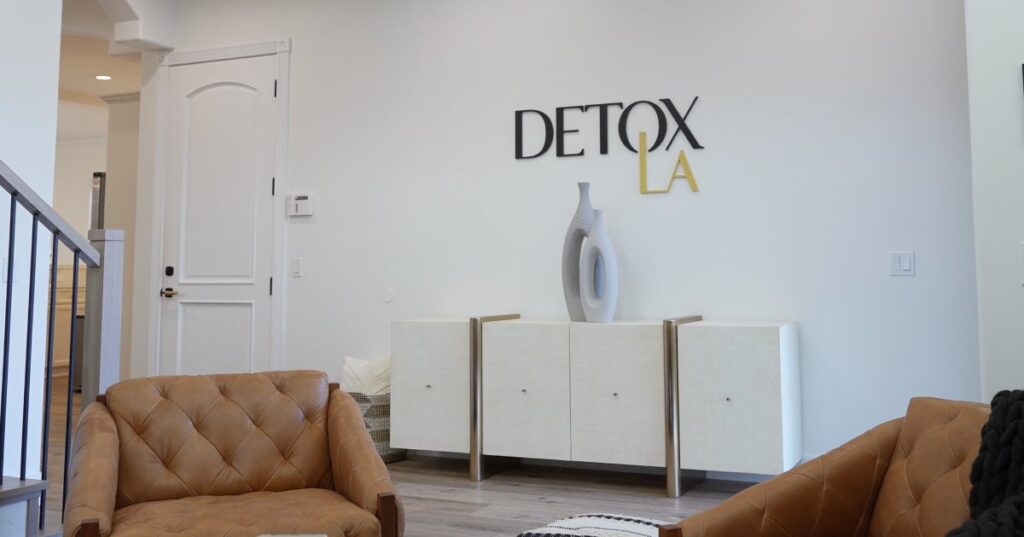Did you know that the United States has been dealing with an opioid epidemic? That’s why opioid and opiate detox programs and rehabs have sprung up nationwide. Many Americans struggle with opioid and opiate addiction. Often, these addictions aren’t brought to light until they’ve already caused disruptions in people’s relationships, responsibilities, and routines. People struggling with addiction may maintain relatively ordinary lives, especially in the initial stages of their substance use disorders (SUDs).
However, almost all people like this need professional help to overcome their addictions. All forms of rehab typically start with detoxification. Looking for an opiate detox program in California? Contact DetoxLA today by calling (818) 616-7341 or reaching out to our team online.
What Is the Difference Between Opiates and Opioids?
Some people distinguish between opiates and opioids when they speak about them, but it’s more common to come across people that don’t. Most prefer one over the other or use the two terms interchangeably. For example, U.S. politicians and journalists tend to refer to drugs like this as opioids.
However, opiates and opioids have different definitions—especially in medicine. The main difference between the two is in how they’re made. Opiates are chemical compounds extracted or refined from poppy sap and fibers. They include:
- Codeine
- Heroin
- Morphine
- Opium
Opioids are chemical compounds that generally are not derived from natural plant matter. They’re primarily made in a laboratory or synthesized by humans. Opioids may be prescribed for anesthesia, cough suppression, diarrhea suppression, or pain relief. Both opiates and opioids may also be misused by people struggling with SUDs.
What Are the Benefits of Getting Admitted Into an Opiate Detox Center?
When struggling with opiate addiction, choosing the right opiate detox center can make all the difference in your recovery journey. Detoxing from opiates on your own is not only challenging but also dangerous. Professional opiate detox programs offer a safe, supportive environment where you can begin your path to healing with the help of trained experts.
Let’s explore the top three benefits of an opiate detox center and why it’s crucial to seek help at a dedicated facility for safe opiate withdrawal.
1. Professional Supervision and Medical Support
One of the key benefits of an opiate detox center is the availability of 24/7 medical supervision. Opiate withdrawal symptoms can be severe and unpredictable, ranging from nausea and anxiety to more serious complications like seizures. A professional detox for opiate addiction ensures that medical professionals are always available to monitor your condition and intervene if necessary, providing medications or treatments that ease the discomfort of opiate withdrawal.
2. Safe and Structured Environment
Attempting to detox from opiates at home can often lead to relapse due to intense cravings and withdrawal pain. A professional opiate detox center provides a safe, structured environment that minimizes the risk of relapse. In this supportive setting, you can focus fully on recovery without external pressures or access to drugs. The opiate detox program helps create the foundation for long-term recovery by offering the tools you need to resist future cravings.
3. Access to Holistic and Therapeutic Support
A well-rounded opiate detox program doesn’t just treat the physical symptoms of withdrawal—it addresses the mental and emotional challenges that come with it. At an opiate detox center, you’ll have access to a range of therapies, from counseling to group support sessions, all designed to help you navigate the emotional side of recovery. This comprehensive approach sets the stage for ongoing care and support, making it easier to transition from detox to a longer-term treatment program.

Choosing the Right Opiate Detox Program at DetoxLA
Selecting an opiate detox center with a proven track record of success is critical for a smooth and safe recovery process. Look for facilities that offer personalized care, highly qualified medical staff, and access to continued support after detox. Whether you’re dealing with mild or severe opiate withdrawal symptoms, the right program will help you manage the detox process safely and effectively.
If you or a loved one is struggling with opiate addiction, don’t wait—reach out to DetoxLA located in Tarzana, a professional opiate detox center. Take the first step toward a healthier future. Call (818) 616-7341 today to schedule.
Frequently Asked Questions Related to Opiates
Why is professional opiate detox important?
Professional opiate detox is crucial because it ensures medical supervision to manage severe withdrawal symptoms safely, reducing the risk of complications or relapse. It also provides a structured environment with therapeutic support, laying the foundation for long-term recovery.
What are the symptoms of opiate withdrawal?
Opiate withdrawal symptoms can include nausea, vomiting, muscle aches, anxiety, sweating, insomnia, and intense cravings, with more severe cases experiencing symptoms like rapid heart rate, seizures, and agitation. These symptoms vary in intensity depending on the individual's level of dependence.
How long does opiate detox take?
Opiate detox typically lasts between 5 to 10 days, though the duration can vary depending on factors like the severity of addiction, the type of opiate used, and the individual's overall health. Some withdrawal symptoms may persist beyond this period, but the most intense symptoms usually subside within the first week.

